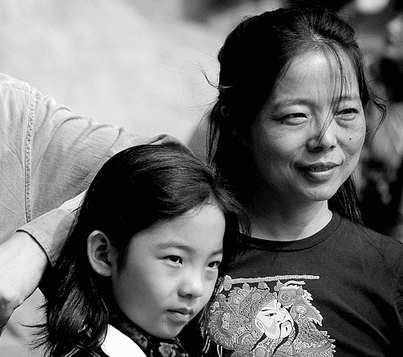I have been closely watching the debates over Sheryl Sandberg’s new book and movement, Lean In. What’s interesting is that it goes against everything I have been taught – not as a woman but as a Chinese American.
My mother taught me a few key values that I’ve struggled with embracing most of my life: show humility but don’t lose face and work hard because your hard work will speak for itself. With those qualities, she often told me, you cannot fail to succeed.
My sisters and I were the first in my family born in America and so we have grown up caught between Eastern and Western values.
Sheryl shared a story on her 2010 TEDx talk that still lingers with me because it speaks to the way I’ve behaved most of my life. She and her brother ended up in the same course at Harvard but they took very different approaches to the exam: she studied and he didn’t. At the end of the exam, even though she had clearly over prepared, Sheryl pointed out where she could have strengthened her arguments. Her brother on the other hand, having not studied all semester and then asked Sheryl to help him out at the last minute, exclaimed with confidence, (and I’m paraphrasing), “I was the best in the class.”
This type of behavior – from Sheryls’ brother – would have been unacceptable to my mother: the lack of hard work and the arrogance. But like Sheryl pointed out, there is something to be said of confidence, particularly when it’s warranted. Further, Sheryl’s brother knew when to admit he needed help and knew precisely where to go to get it. If you’ve worked hard, who is going to know that if you don’t speak up for yourself?
My first major argument with my mother erupted in high school when I was sixteen. Up until then, I had diligently stuck to the honor-lane math and science courses, but my lack of natural ability in those subjects was finally catching up.
My parents, particularly my mother, felt very differently. She felt, for certain, despite countless hours spent on math drills, that I simply wasn’t working hard enough. She didn’t understand that there needed to be a certain level of talent and gift to excel in honors mathematics.
When I got my first “C” in honors trigonometry, my mother refused to speak with me for weeks, and the tension spread to the whole family. It was a long period of silent dinners. So throughout high school, we continued to fight and to struggle. My GPA continued to drop dramatically.
By my junior year, my course schedule was jam packed with college-level computer science, biology and mathematics courses. I was drowning in codes and numbers, struggling with programming a tic-tac-toe game in C++ when most of my classmates succeeded in programming a game of chess.
Then the daughter of a close family friend – a girl my mother had written off because she hadn’t placed in honors math – began receiving acceptance letters into several Ivy League schools. My mother was baffled. I wasn’t. She was a very talented, varsity-level swimmer who had a 4.0 GPA, even if she took non-honors math and science.
My mother and I both learned the hard way that success isn’t defined simply by how hard you work. While it’s important, it’s equally crucial that you find your talent, your strengths, you hone them, learn when to ask for help, and also market yourself in a way that highlights your skills.
My mother and I have traveled a long hard road together. But it was at the moment we both realized we needed to redefine “success,” as well as how to get there, that we were able to finally start the process of mending our relationship.


